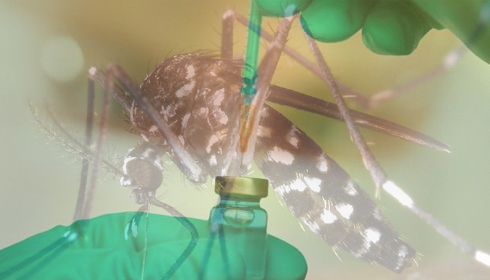
USFDA approves world’s first chikungunya vaccine
The United States Food and Drug Administration (FDA) has given the green light to Ixchiq, marking the first approved chikungunya vaccine. Ixchiq is now authorised for those aged 18 and above who face an increased risk of exposure to the chikungunya virus.
In a statement released recently, the drug regulator stated that chikungunya is a vector-borne virus primarily spread through mosquito bites, and it has become a global health concern, with over 5 million reported cases in the past 15 years.
The statement added that the virus-carrying mosquitos are most prevalent in tropical and subtropical regions, including parts of Africa, Southeast Asia, and the Americas. However, the virus has spread to new areas, increasing its global prevalence in recent years.
Announcing the approval, the director of the FDA’s Center for Biologics Evaluation and Research, Dr. Peter Marks, said, “Infection with chikungunya virus can lead to severe disease and prolonged health problems, particularly for older adults and individuals with underlying medical conditions,”
“Today’s approval addresses an unmet medical need and is an important advancement in the prevention of a potentially debilitating disease with limited treatment options,” Dr Marks emphasised.
The vaccine is administered as a single dose through injection into the muscle. It contains a weakened version of the chikungunya virus, potentially causing symptoms similar to those experienced by people who contract the disease.
The approval came after an evaluation of around 3,500 participants, with the most common side effects reported by vaccine recipients being headache, fatigue, muscle and joint pain, fever, nausea, and tenderness at the injection site.
According to the Drug Regulator, severe chikungunya-like adverse events occurred in 1.6% of Ixchiq recipients during the experiment, resulting in the hospitalisation of two people.
FDA said that the post-administration examination found that most people had vaccine virus detectable in their blood within the first week of immunisation, however, the virus was not detected 14 days later.
However, putting a word of caution, the FDA stated that the risk of transmission from pregnant individuals to newborns and possible adverse effects in newborns is unknown for the vaccine and warned that newborns could show severe chikungunya-like adverse reactions and advised caution while vaccinating pregnant women.
Responding to the approval, the Chief Executive Officer of Valneva Thomas Lingelbach said, “As a leading speciality vaccines company, we aim to deliver vaccines in areas of unmet medical need supporting our vision to contribute to a world in which no one dies or suffers from a vaccine preventable disease.”
Expressing his gratitude to everyone who made it possible to prepare the vaccine, the Velneva CEO added, “I would also like to recognize CEPI and Instituto Butantan for their collaboration in potentially bringing this product to low- and middle-income countries.”
Commenting on the development, Chief Executive Officer of the Coalition for Epidemic Preparedness Innovations (CEPI), Dr. Richard Hatchett,said, “The first-ever licensed chikungunya vaccine will play a crucial role in preventing the suffering caused by this debilitating disease.”
Pointing out that climate change is intensifying the threat posed by chikungunya, which means safe and effective vaccines are needed now more than ever before, Dr Hatchett added, “Through our partnership with Valneva and Instituto Butantan, CEPI – with support from the EU – will help to make this vaccine accessible to the people most affected by the virus in low- and middle-income countries.”
Emphasising that more than 75% of the world's population lives in areas at risk of CHIKV transmission due to factors such as global warming and climate change, Chief Medical Officer of Valneva Dr Juan Carlos Jaramillo, said, “Chikungunya has already spread to over 110 countries and is currently regarded as one of the most likely viral infections to emerge in new geographic areas.”
“Morbidity is high with 43% of CHIKV patients suffering from chronic chikungunya where joint pain, fatigue, and potentially debilitating effects may last from months to years and can have a substantial impact on daily activities,” he added.